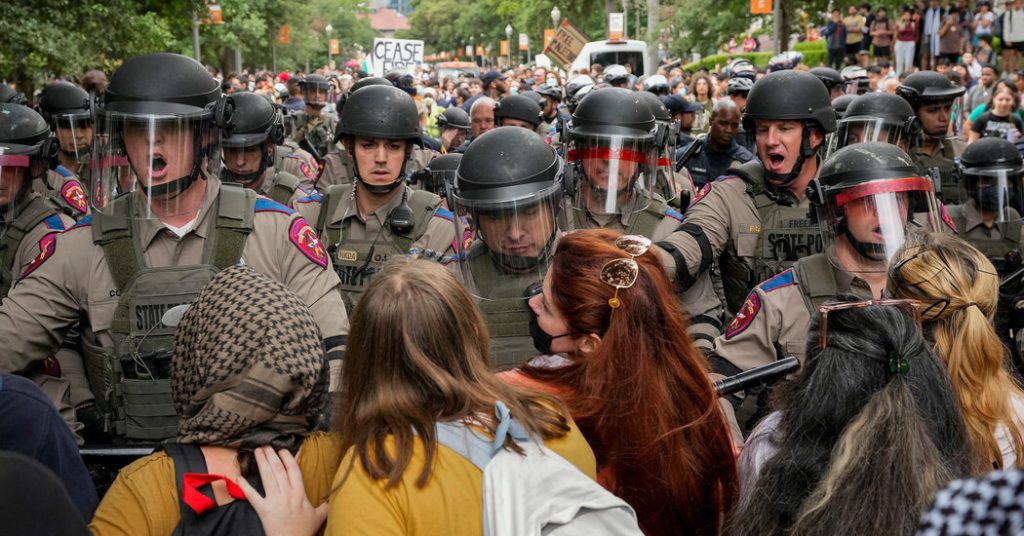A wave of pro-Palestinian protests spread and intensified on Wednesday on campuses across the United States, with students gathering and facing off with police in some instances. The protests were related to campus speech and the ongoing war in Gaza. University administrators moved to clear protesters and prevent encampments from being set up on campuses, deploying police and making arrests. Protests in various cities expressed solidarity with Columbia University students and the broader pro-Palestinian movement.
Protesters on numerous campuses demanded divestment from companies linked to the Israeli military campaign in Gaza, as well as transparency regarding investments and the right to protest without facing punishment. Demonstrations also took place in international locations like Cairo, Paris, and Sydney. At Columbia University in New York, where a large number of tents had been set up, House Speaker Mike Johnson visited and called for the school’s president to resign if she couldn’t control the situation. Some members of Congress suggested revoking federal funding for universities that couldn’t maintain control over protests.
Republican lawmakers have accused university administrators of not doing enough to protect Jewish students on campuses, particularly during protests that included expressions of support for Hamas and antisemitic content. Protests at universities in Texas, including the University of Texas at Austin, led to numerous arrests as police attempted to disperse crowds. Students at various campuses, such as the University of Southern California and Brown University, were protesting in solidarity with Palestinians and demanding divestment from companies involved in the conflict.
Protests at Harvard University and Cal Poly Humboldt in California took place despite efforts by administrators to prevent encampments. Students faced arrest at Ohio State University and reiterated their determination to stay and protest until their demands were met. In Texas, Governor Greg Abbott expressed support for Israel and condemned antisemitism on campus, leading to a heavy police presence at the University of Texas at Austin. The university took steps to prevent disruptions and arrests, emphasizing that students should be able to continue with their classes and exams without interruption.
Overall, the protests at universities across the country reflected a growing movement in support of Palestine and against the Israeli military campaign in Gaza. Students were demanding action from their universities, including divestment and transparency regarding investments. Administrators and lawmakers were divided on how to handle the protests, with some calling for firm action to prevent disruptions on campus, while students expressed solidarity and determination to continue their protests until their voices were heard. The situation remained tense as protests persisted, both in the United States and internationally.


